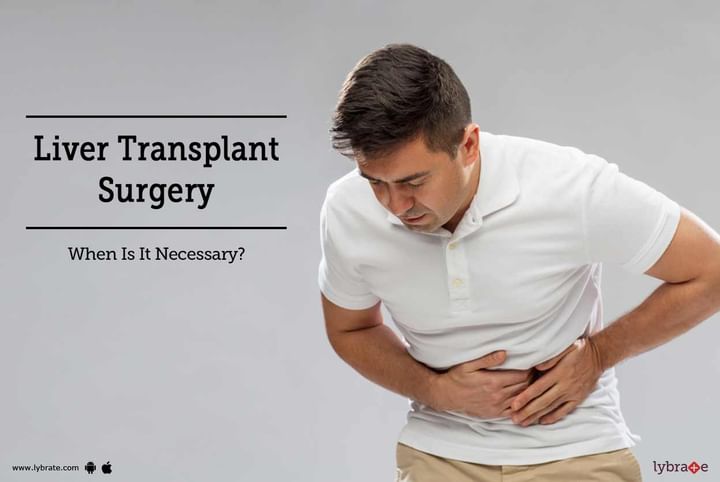Get the App
For Doctors
Login/Sign-up
Last Updated: Jan 10, 2023
BookMark
Report
Liver Transplant Surgery - When Is It Necessary?
Dr. Ankur GargLiver Transplant Surgeon • 23 Years Exp.M. Ch.(HPB Surgery & Liver Transplant), FEBS, MBBS, MS - General Surgery
Did you know that liver stands second among the most transplanted organs in the human body? Liver diseases are becoming more prevalent today. A liver transplant becomes necessary when a person’s liver is diseased or injured. Through surgical procedures, a part or the complete healthy liver is transplanted from the donor.
Here are some of the typical reasons for a liver transplant:
- Autoimmune Hepatitis: In this kind of hepatitis, the body's immune system is not able to recognize its own liver tissue. It thus begins to injure the liver cells and that finally leads to scarring, liver cirrhosis, and end-stage liver disease. Unlike chronic viral hepatitis, this disease is not caused by a virus.
- Chronic viral hepatitis B, C, D: Hepatitis is caused by the viral infection which results in swelling, inflammation, and cell damage. All these lead to liver destruction or scarring. The different types of hepatitis are A, B, C, D and E. Hepatitis B is the leading indicator of liver cancer worldwide.
- Non alcoholic fatty liver disease: Fat accumulation in the liver cells causes this disease. It is said that excessive alcohol is the leading cause of a fatty liver. But this condition is also seen in patients with diabetes and obesity. This condition can cause liver cirrhosis.
- Primary sclerosing cholangitis: In this disease, the bile duct becomes progressively damaged by inflammation. This results in scarring that narrows the bile duct and causes obstruction to the flow of bile.
- Biliary cirrhosis: Sometimes there is a blockage in the bile duct. The liver creates bile which passes from the bile duct to the gallbladder. From here it is slowly released into the small intestine and helps in digesting fats. When the bile duct is blocked, all the bile that is produced accumulates in the liver and causes swelling and eventually loss of liver function.
- Active liver failure or toxic exposures: People suffering from acute liver failure caused by other reasons such as viral infection, fatty liver, etc. can undergo liver transplant surgery. Exposure to certain pesticides, herbicides, lead, asbestos and other hazardous pollutants can be the cause of a potentially life-threatening liver disease.
- Caroli's disease and choledochal cyst: The bile ducts become dilated and result in the formation of cysts or sacks. This causes infection and obstruction of the bile ducts. Choledochal Cyst, On the other hand, is a congenital disorder. A choledochal cyst is formed due to a structurally flawed bile duct. In both these scenarios getting a transplant is mandatory.
- Hepatic tumors: Tumors that spread either from other parts of the body or those that develop in the liver itself can cause severe damage to this organ.
It is best to consult an expert to know if a liver transplant is necessary for you. Hence, when you have problems related to liver seek medical advice without delay.



+1.svg)
